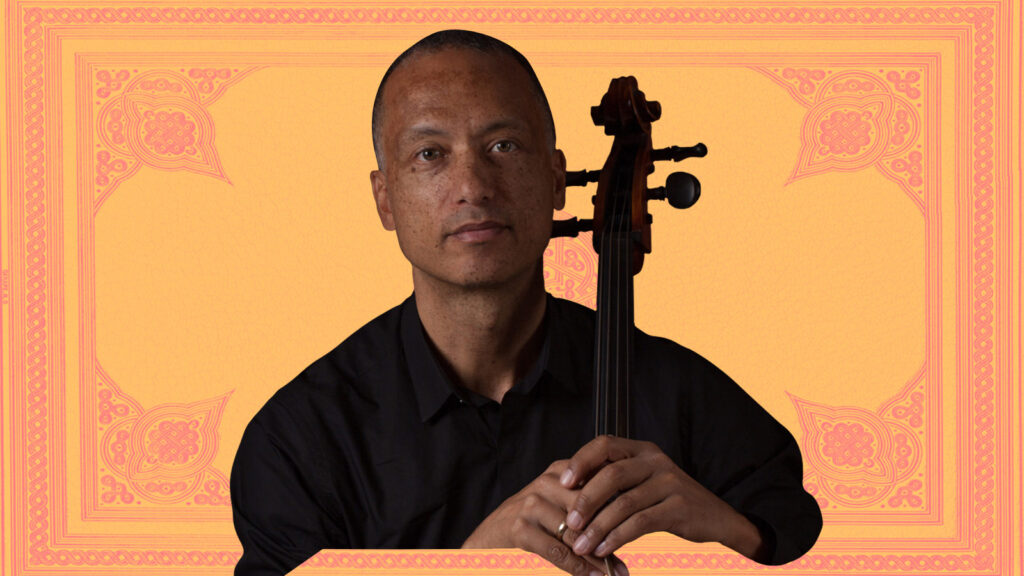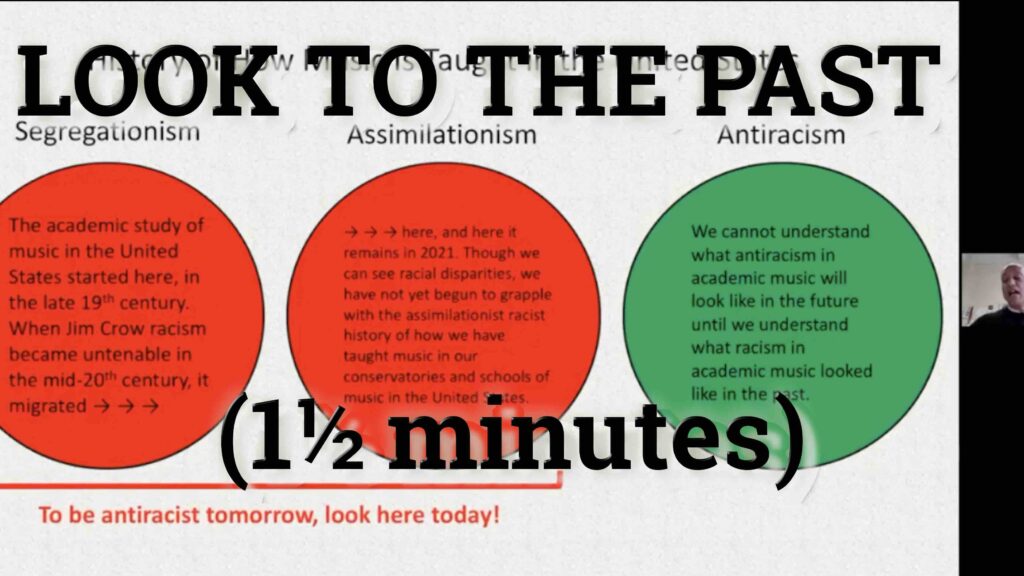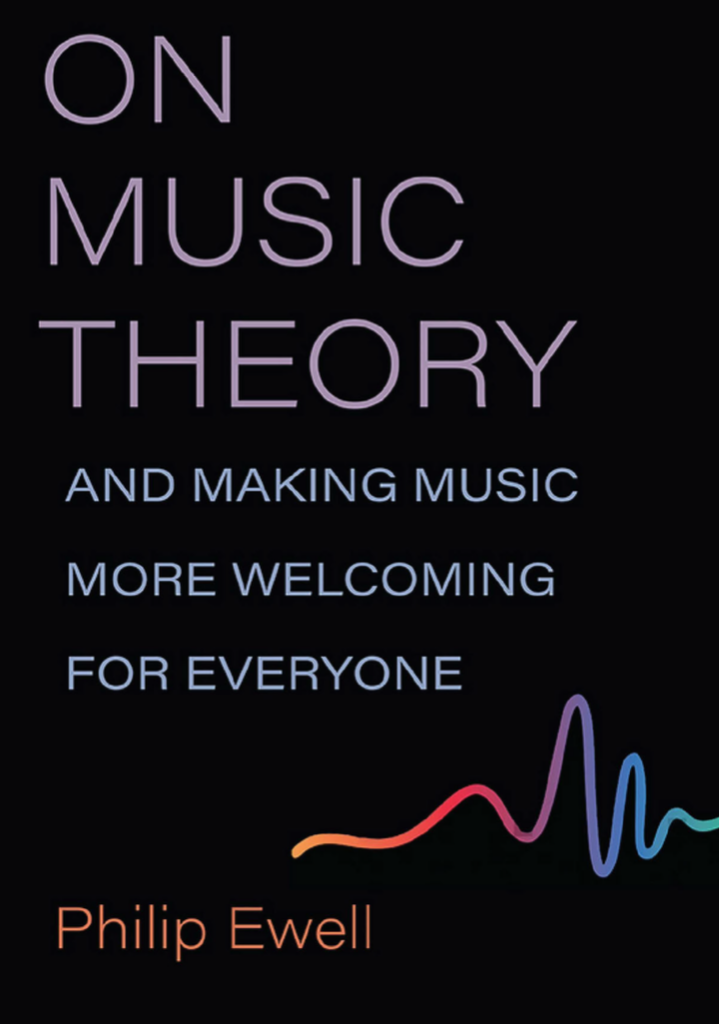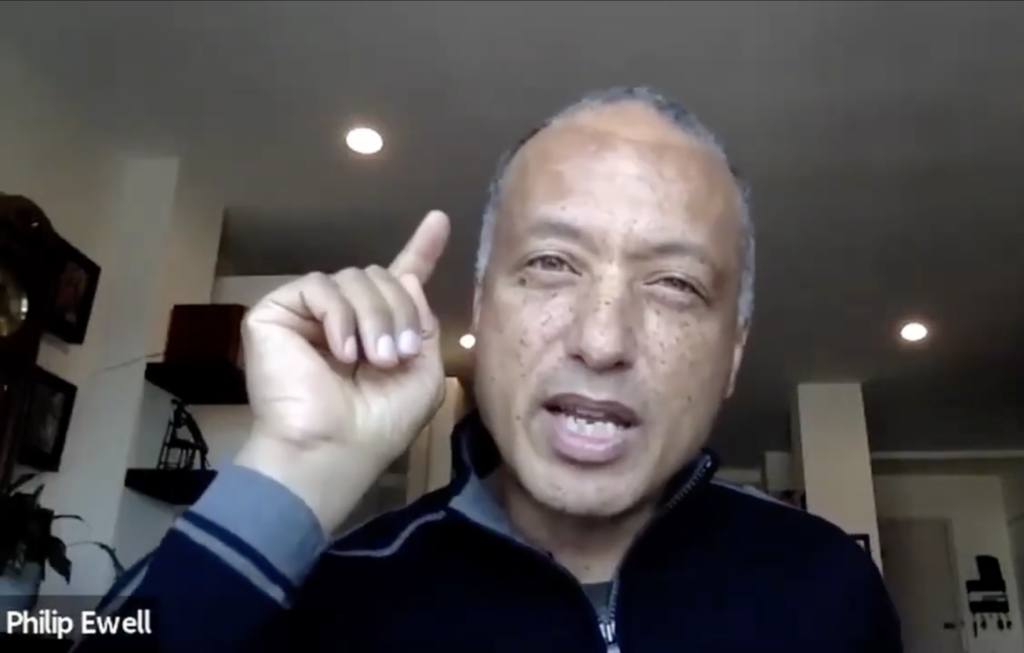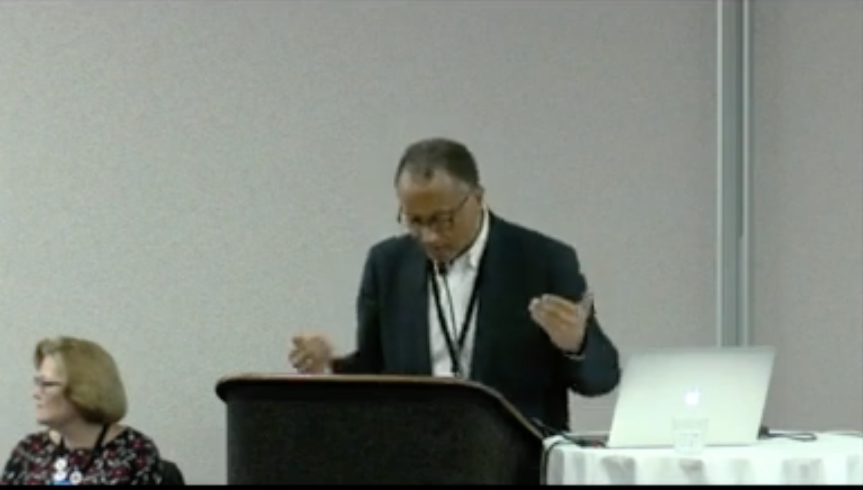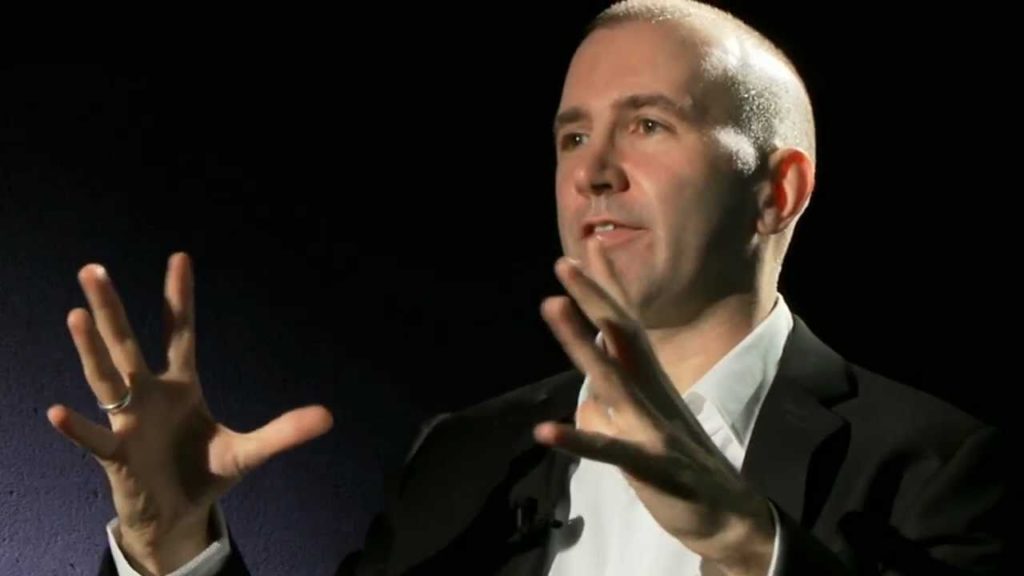Critical Critical Theory Theory
- Critical Theory is reframed as a power structure using its own practices drawn mostly from Western thought. These involve knowledge misappropriation, misattribution and misuse of ideas, secret monitoring, stressful persuasion, ideological authority claims, exclusion, frame trapping, and inducing disordered communication through doubling binds.
Deer Whiteness and Maleness
- (Part 4 of Philip Ewell Go Down In History) It is not that Ewell is a poor Critical Race Theorist, but that he is such an effective one, that his work is helpful: it can be used to lay bare the workings of Critical Theory in general.
I Don’t Know. What’s Music Theory?
- This section consolidates Philip Ewell's papers, talks, blog posts and virtual symposia, including Q&A sessions, into a summary of his views on race and antiracism with respect to music theory in particular. It includes short video excerpts that illustrate Ewell's most essential remarks by topic. The summary is intended as fair and accurate, not critical or skeptical. In order to begin responding in any way to Ewell's work, it must be fully understood in both detail and overview.
On Music Theory And Making Music More Welcoming For Everyone
- Philip Ewell‘s book, On Music Theory and Making Music More Welcoming For Everyone is available for download below for individuals whose work its contents concerns but who do not wish to monetarily support the University of Michigan’s Music and Social Justice series.
Society for Music Theory Plenary Talk, 2019
- Philip Ewell's 2019 plenary talk, "Music Theory's White Racial Frame" is provided here for streaming and download.
Philip Ewell Go Down In History
- In the last four years, Philip Ewell has risen to international attention as a music theorist and public intellectual, specifically in the area of Critical Race Theory as he believes it should inform academic music theory and, to some extent, classical music as a whole. This article is neither a response nor a rebuttal to Ewell. It rather provides context and supplemental information to the words and behavior of Ewell and those whose opposition and support he has amplified and brought to prominence in the media in and outside of classical music. It also proposes alternative directions to those that have been tried so far in response, on both sides.
The Persnickety Classical Music Critic Caves
- Ross’s was soon firing on all cylinders, with one article after another devoted or related to black musicians. Troublingly, scarcely a word of actual criticism can be located in any of them. For a self-described “persnickety classical music critic,” [1] he becomes remarkably stingy with the lukewarm assessments and snide remarks he lops at white artists both present and past.
Searching for Alternatives to Esa-Pekka Salonen
- In one of his best moments ever, Alex Ross writes, “Salonen cherishes the symphony-orchestra tradition, and sees no need for it to be transformed beyond recognition or junked altogether.” By 2020, it would already become necessary to address both possibilities, for quite different reasons than Ross anticipated. “This period [2020] has shone light on an unbelievable amount of baked-in inequality and rotten practices rooted in the foundation of everything we do,” as Ross quotes composer Nico Muhly saying. Seldom in American history has classical music achieved more attention than when Critical Race Theorists, many without a shred of prior interest in it, saw the opportunity to expose its so-called racist antecedents.
Alex Ross and the Future of Classical Music, Part I
- Alex Ross was irritated by the 2018 celebration of Leonard Bernstein’s 100th birthday at Tanglewood and throughout the world. In his article “Leonard Bernstein and the Perils of Hero Worship“, he flinches at every superlative about the first great American-born conductor. With a loosely thrown together list of historical circumstances, Ross appears quite seriously to argue that Leonard Bernstein was, more than anything else, at the right place at the right time.

